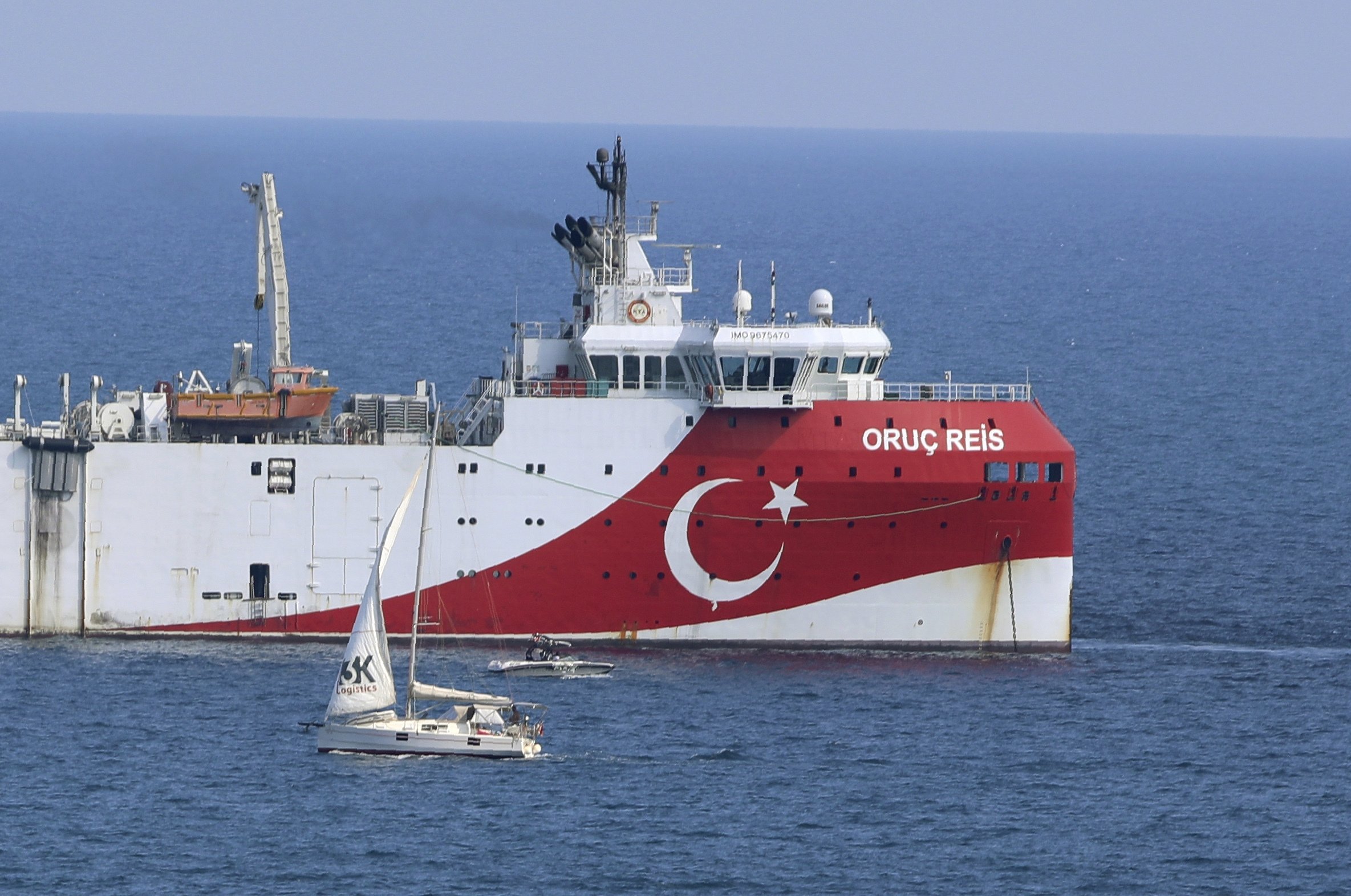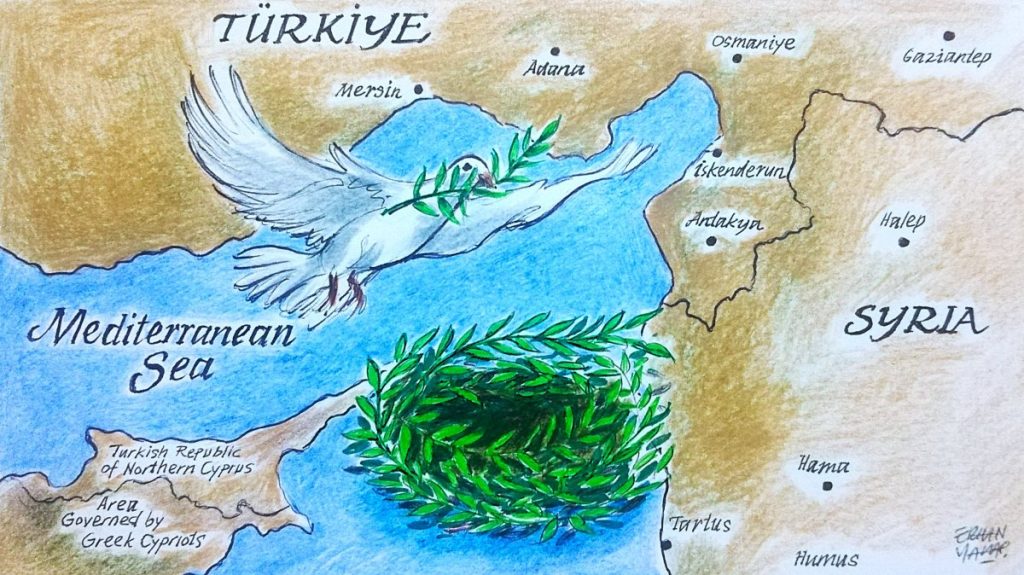Following the collapse of the Baath regime led by Bashar Assad in Syria, an agreement is being proposed between the new Syrian interim government and Türkiye on the determination of maritime borders. The maritime border delimitation process, which was previously hampered by the dispute over Hatay’s status, was interrupted in 2011 due to the deterioration of Türkiye-Syria relations. In fact, even the lateral border to separate the 12-mile-wide territorial waters of both countries has not been determined for these reasons.
It should be considered normal that the delimitation of maritime borders has come to the agenda with the establishment of the new Syrian government, with which Türkiye also has good relations. The statement of Transport and Infrastructure Minister Abdulkadir Uraloğlu regarding the necessity of a maritime jurisdiction agreement between Türkiye and Syria should be evaluated in this context. However, the detailed suggestions made by nongovernmental circles on maritime borders also raise questions about how accurate and timely these suggestions are.
The proponents of the proposal argue that a maritime border agreement to be made by Türkiye, which has an advantageous position according to international law due to its relatively longer coastline in the Eastern Mediterranean, with Syria would provide Türkiye with relatively wider maritime areas.
According to the proposal, maritime jurisdiction areas are to be assigned to the Turkish Republic of Northern Cyprus (TRNC), but part of Türkiye’s maritime jurisdiction area could legally extend southward, between those of the TRNC and Syria. Aside from whether such a maritime jurisdiction border is legally possible, some advantages and disadvantages of a potential maritime border agreement between Türkiye and Syria should be considered at this stage.
Disputed borders and rights
Undoubtedly, such an agreement would provide gains for Türkiye, as Syria officially recognizes that the Hatay region is under Turkish sovereignty. In the early 1980s, the two countries held negotiations to determine the territorial waters lateral border, but the talks failed due to the differences over Hatay.
Another gain will be energy-focused. With the determination of maritime borders, Türkiye’s knowledge and experience, infrastructure and technology will also provide Syria with an advantage in terms of energy exploration activities. On the other hand, it can be stated that Türkiye’s strong regional role in the Eastern Mediterranean can also help Syria strengthen its relations with other regional actors.
If the TRNC can be included in the Türkiye-Syria maritime border agreement, it will not only prevent the maximalist demands of the Greek Cypriot administration and their usurpation of the TRNC’s rights, but it will also pave the way for the TRNC to be recognized by Syria, at least de facto.
As a matter of fact, the basis of the ongoing tensions in the Eastern Mediterranean was the disputed maritime borders, which were created especially by the unilateral initiatives of the Greek Cypriot administration to exclude Türkiye and the TRNC. The delimitation agreements the Greek Cypriot administration signed with Egypt in 2003, with Lebanon in 2007 and with Israel in 2010 have been the subject of objections from Türkiye and the TRNC. Again, starting in 2007, the Greek Cypriot administration declared hydrocarbon natural resource exploration license areas and made some agreements on these disputed borders.
These frictions, which started over maritime borders and focused on the extraction and transportation of natural resources from the region, have also paved the way for interventions by some non-regional powers that disregard Türkiye’s concerns. One of these interventions was the establishment of the Eastern Mediterranean Gas Forum, which excluded Türkiye, and the other was Türkiye’s exclusion from the EastMed Pipeline project. Another and more recent development is the Great Sea Interconnector (GSI) project planned between the Greek Cypriot administration, Greece (Crete) and Israel, which will ultimately connect continental Europe to the Eastern Mediterranean.

Reasons to be cautious
Despite the advantages of the Türkiye-Syria maritime border agreement, it should also be noted that the process of determining the maritime jurisdiction area boundaries outside the territorial waters at this stage requires some caution.
First of all, a possible agreement should not conflict with the legal principles applied in the Continental Shelf Delimitation Agreement signed between Türkiye and the TRNC in 2011. Otherwise, it would contradict the international legal principles that Türkiye has emphasized for years to be taken as a basis for determining maritime boundaries in both the Eastern Mediterranean and the Aegean Sea and it could harm Türkiye’s legal position. In other words, if a possible maritime jurisdiction area delimitation process covers the areas off the coast of the TRNC, the TRNC should also be one of the parties in the process, instead of disregarding the TRNC’s possible maritime jurisdiction areas.
This very issue may lead us to question the appropriateness of the timing of the possible Türkiye-Syria delimitation agreement. The fact that the government in Syria is provisional makes this government’s relations with countries sensitive. At this stage, expecting the Syrian government to recognize the TRNC would not simply be a timely expectation.
Moreover, the provisional nature of the government will cause any maritime jurisdiction border agreement to be subject to criticism. While it would be perfectly legal for the current provisional government to make such an agreement, it is likely that some countries would like to cast doubt on the potential agreement by using the “provisional” status as an excuse. While the Türkiye-Syria maritime border is necessary for both territorial waters and maritime areas such as the continental shelf and exclusive economic zone, its nature and timing should be chosen correctly. At this stage, the most reasonable approach would be to make a Türkiye-Syria territorial waters lateral border agreement.


